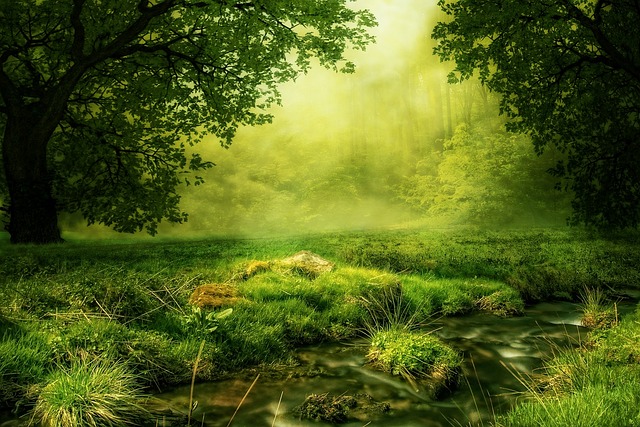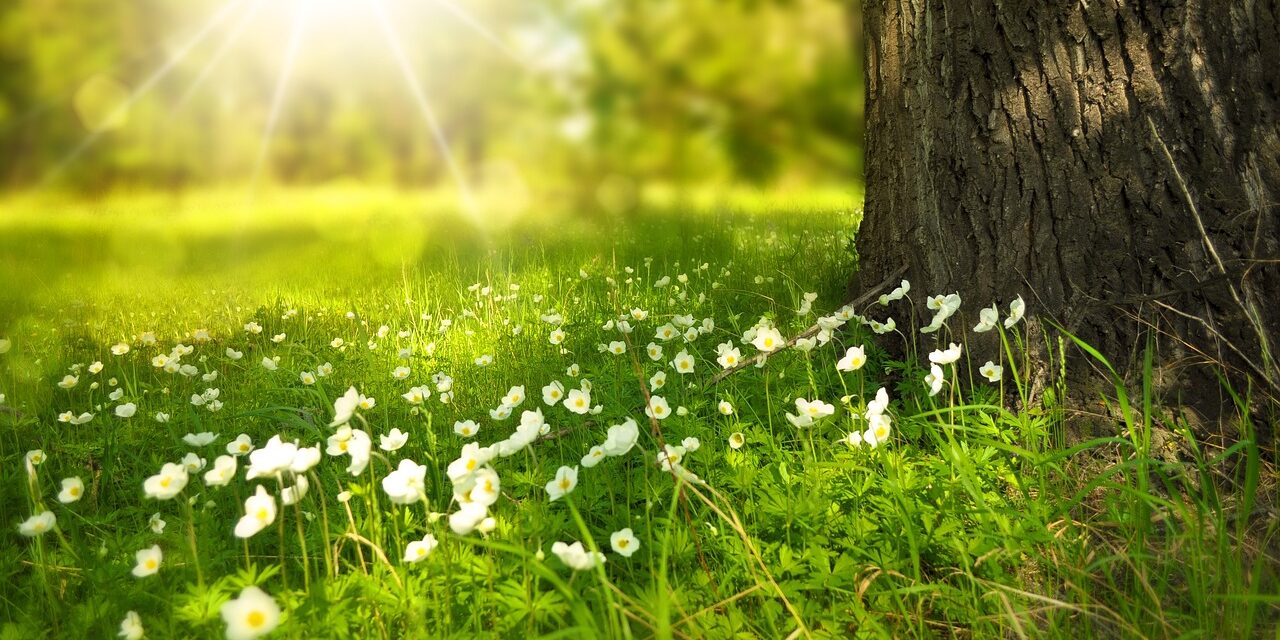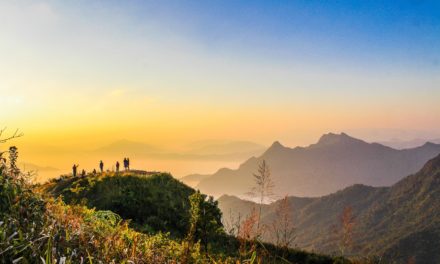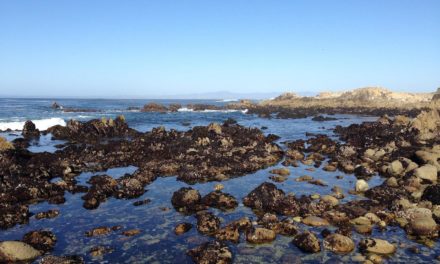“Often I am permitted to return to a meadow…” Robert Duncan
A grassy knob where lovers picnic. A field of daisies hikers chance upon. A mountainside ringing with “the hills are alive.” These landscapes soothe souls, evoke powerful images in the human psyche, and delight our senses with their beauty and serenity. Yet they pale in comparison to a mystical meadow I’ve come to know.
My introduction to this holy place beyond chronological time and linear space, “a made place, created by light” as Duncan writes, came unbidden, more than thirty years ago, at the bedside of a dying friend.
“Consider yourself hugged,” Linda whispered in a raspy voice as I entered the room. My friend lay propped on white pillows in a borrowed hospital bed, her brown page boy hair tucked behind her ears. Cancer had feasted on her bones until she could no longer raise her arms. Even in her weakened state, she wiggled her fingers in a wave.
“What can I do for you?” I asked, knowing little could be done, other than bringing meals for her husband and her two estranged daughters, women in their twenties, who had come to see their mother before she died.
“Just sit here a while, by my side, so I can hear you,” she said.
I lowered myself into a straight-backed chair and lifted her hand into mine.
“Does it hurt for me to touch you?”
“Not if you’re gentle,” she replied, closing her eyes as if our brief exchange had sapped all the energy she had stored for such visits.

After a few minutes of labored breathing, Linda broke the silence. “I want to tell you some things I’ve never shared with anyone.”
“You probably need to rest,” I protested.
“No. I need to get them off my chest, and I don’t want to burden my daughters. They’ve been through enough already.”
For several years, Linda and I had worked together in my husband Frank’s law office. Hiring her as a paralegal was one of his best decisions. A nurse by training, she could ferret out medical records for personal injury and worker’s compensation cases that gave him an advantage negotiating with adjusters and presenting evidence to a jury. Linda was, as Frank often told her, “worth her weight in gold.”
During the time we’d known each other, she and I had celebrated each anniversary the doctors pronounced her breast cancer still in remission. But I knew little about Linda’s earlier life in Florida.
“Did I ever tell you my mother was mentally ill?” she began. “When I was a little girl, she came after me with a butcher knife. Paranoid schizophrenia. Didn’t know who I was.”
“A cousin of mine lived through the same thing with her mom,” I said, hoping the words would reassure her.
Linda went on. “That’s why the divorce was a nightmare. My husband was a physician. He knew my family history. When I told him I was leaving, he threatened to have me committed.”
“Could he have done that?” I asked.
“The marriage was a mistake. I suffered from depression. He told me, with his connections, I didn’t stand a chance. And if I spent time in a mental institution, no judge would ever let me have the girls.”
Linda paused to rest. When she resumed, her words came more slowly, as if she were reliving the scene.
“Walk away, he said. Make it easy on yourself and everyone else. So that’s what I did.” Her eyes, ringed with dark circles, implored me to understand.
“You made the best decision you could at the time, Linda.”
“Maybe. The girls were so young. I couldn’t fight him and win…and I knew he’d be able to provide for them better than I ever could.”
She exhaled, coughed. I could hear the rattle in her chest.

“Even if I’d lost, Karen, I wish I’d tried. I’ve never forgiven myself for signing over custody. And they haven’t either.”
As I lightly stroked her fingers, her body mustered a few meager tears. Once again, her eyelids closed, her head sank deeper into the pillow, and she drifted into what I presumed was sleep.
How long I remained in that chair, holding her hand, I don’t know. Five minutes or fifty, it doesn’t matter. Nor do I know whether my eyes were open or closed during that time. What matters is what happened. The walls of the room seemed to expand, become fluid, and dissolve. The air pulsed around me. Time slowed, then I was no longer “in time.”
At some point, my surroundings came into focus again, and I glanced at Linda. She still seemed to be resting, so I picked up my purse and began to tiptoe out of the room.
“Wait, Karen.”
I turned to see her eyes open wide. Her face hinted of a smile.
“Were you there?” she asked.
“Where?”
“The meadow. I was a child again, running and skipping in a field of tall grass. You were there with me. Did you see the wildflowers?” Her eyes flared with joy. “And that breeze, that wonderful breeze blowing through our hair!”

“I wasn’t in the meadow, Linda, but I sensed something precious was happening. I can imagine you romping and playing there.”
I don’t remember the drive home. When I pulled into the garage and climbed out of the station wagon, I felt weightless, as if my feet no longer touched the ground.
Opening the back door, I found Frank sitting at the kitchen table. His glasses rested beside a file on which he’d been working. “You were gone a lot longer than I expected,” he said. “I was afraid something bad had happened. How’s Linda?”
Right then, I wish I’d asked him if he noticed anything different about me, if light were shining through my pores. Instead, we sat sipping sweet tea on our screened-in porch while I recounted details of the afternoon visit. After listening, Frank went upstairs and returned with a paperback novel entitled Shibumi. Locating a dog-eared page, he read aloud a passage that described a floating meadow experience.
“Was it like this?”
“I don’t know. I wasn’t in the meadow, Frank. All I can tell you is something happened to me while Linda was there.”
That explanation was the only one I could provide. At the time, I didn’t know the words “numinous” or “unitive.” I’d grown up hearing older family members and lay ministers talk about how Spirit moves, touches our lives, comforts and guides us. Sometimes they’d refer to that presence as God, at other times the Holy Ghost. What had happened during my visit with Linda was outside rational understanding, but of two things I was sure: I was far too peaceful to be crazy, and nothing obvious in the external world had changed.

Linda died a few days later. By the time I attended her funeral, my weightless state had dissipated, but her parting gift lingered: an introduction to another realm where every cell in my bones and blood had been recalibrated. I knew my path forward had to embrace this new embodiment of divine mystery and love. I just couldn’t fathom how.
A year later, the meadow reappeared during a Sunday morning worship service in a small Presbyterian church. I was emptying my mind of its usual “to do” list during the silent meditation preceding the sermon when an image flashed into my consciousness. A young girl was running through a beautiful field, her hair flowing in the wind, the same scene Linda had described before her death. I sensed my friend’s presence nearby. In the next image, two girls skipped hand in hand up a rise. In some inexplicable way, Linda had come to visit, and a part of me was in that landscape with her.
When the organ sounded the first notes of the doxology, the music startled me back into the sanctuary. I had missed the entire sermon. Again the gift of the meadow left me floating and speechless. To avoid conversation, I slipped out of the church during the closing hymn. When I got home, I didn’t mention the episode to my husband and after a quick lunch took a long walk in the neighborhood, absorbing light that streamed through the hemlock trees and rhododendron thickets.
In my childhood I hungered for sacred spaces—an empty church, stand of pines, or my backyard where stars glittered like diamonds in the indigo night sky. Pajama-clad, I would lie on the grass, stare at the constellations, and converse with whoever was “up there,” unaware of time passing.
Such communion experiences lessened and eventually disappeared as I progressed through school, married, worked, and raised children. Somehow my friend’s death and subsequent visit re-opened a portal to that holy dimension. But her gift also left me with a dilemma.
As a Christian, I’d participated in the usual religious activities—attended church, prayed, taught Sunday School, and tried to comprehend scripture and doctrinal points. The sacred occurrences with Linda fell outside that framework. They were too fragile, transcendent, and intimate to share; and honestly, I feared being considered suspect if I spoke about them. So, I held them close to my heart, wondering and wrestling with the fact that they were an undeniable part of my life.

Two years after Linda’s death, surgery to repair a ruptured disc confined me for several weeks in my upstairs bedroom. Depressed that my marriage was flailing, I feared the future and had stopped eating. Early one morning, lying in bed, I was levitated into the back of a buckboard and transported to Linda’s meadow. Once there, a gentle warmth entered the crown of my head, spread throughout my body, and exited through the bottom of my feet. Then, like a rising tide, a loving presence filled me and the whole room with healing light. That visit gave me enough energy to say yes to life, recover from the surgery, and weather the subsequent family upheaval.
The following summer, I saw a painting at a sidewalk art sale of what had now become my sacred meadow. I asked the artist to tell me about the scene.
“I was taken there several times while being treated for cancer,” she said. “It was my sanctuary.”
“I’ve been in that meadow too,” I told her.
Each time I find myself transported to the meadow, familiar landmarks welcome me. At the highest point, a large smooth granite rock rises gently from the earth, providing a place for me to rest and soak in warm, radiant light. A short hike from the rock leads to a clear pond from which other animals and I drink. Streams feeding this watering spot meander through fields of lime green, knee-high grass.
Sometimes daisies bloom or parts of the meadow blaze with wildflowers, as Linda first described. At other times, a golden haze bathes everything. Friends and loved ones, living and dead, join me occasionally, but most of the time I am alone. I cannot see beyond the edges of the meadow but have been told by others who’ve visited that holy place that forests, caves, and underground rivers exist nearby.
Although I long to be in the meadow more often, I cannot go there of my own accord. These mystical moments seldom occur in the context of a guided meditation or in response to prayer. When the doorway opens and I am permitted to return to this place I can only call “beyond,” I breathe in love, timelessness, and awe. In an otherworldly silence, divine breezes brush my skin. I know I am home.
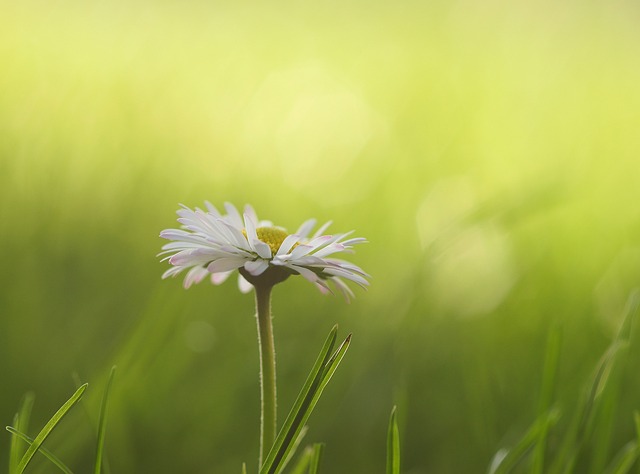
At first I considered my meadow experiences rare. Over time, however, synchronistic conversations and published accounts have convinced me they are not limited to a chosen few.
For example, in his book The Man Who Planted Trees, Jim Robbins includes Plato’s report of a soldier named Er’s near-death experience. After dying in battle, Er ascended to “a celestial realm where he saw a brilliant rainbow shaft in the meadows of heaven and watched as other souls chose a new life in which to be reborn.” Ten days later, when dead bodies were being collected, Er regained consciousness and told his story.
A meadow also figures prominently in a 1995 account “Angels at the Edge” by contemplative theologian and psychologist Gerald May, published in Shalem News. In journal notes recorded while hospitalized during chemotherapy, May relates his vision. “God has placed me upon a promontory and has spread out before me a small version of the universe. It is a beautiful rolling meadow, and I am meant to see every part of it …the angels are everywhere; there is nowhere outside God’s protection.”
Closer to home, a friend in my women’s circle shared that in a morning meditation, she’d pictured piling all her worries into a wheelbarrow and pushing them up a hill to the cross on which Jesus hung. As she left the wheelbarrow of burdens at the foot of the cross, she was free to walk in a holy field surrounded by friends and beautiful light.
Eager to know more, I asked, “Have you been in that place before?”
“Yes,” she responded. “Last year.” That’s all she would say.
My friend’s journey may have been too fresh and sacred to air more of it out loud, but my trips had been recurring for years. We were both members of a church which honed theological arguments, took vigorous stands on social justice issues, and professed a belief in the mystical body of Christ. We’d taught each other’s children in Sunday school classes and broken bread together. So why did I hold back?
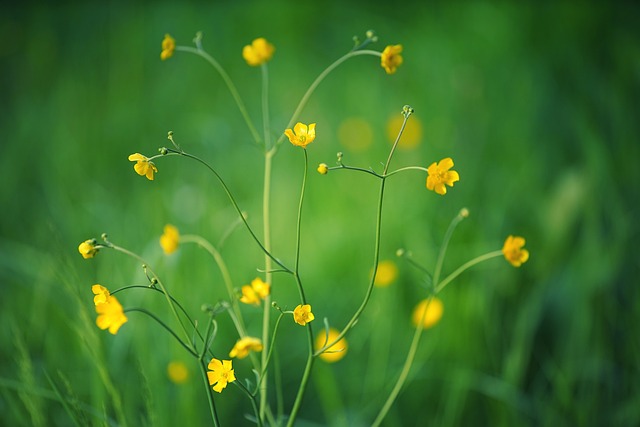
Several weeks after her call, I found another meadow account in a book I’d checked out of our church’s library, Thinking with Your Soul: Spiritual Intelligence and Why It Matters. Harvard professor Richard N. Wolman had invited participants in a pilot study to describe a personal transformative spiritual experience. One mother, whose eleven-year-old son was diagnosed with an inoperable malignant tumor, shared a dream which she likened to a near-death experience:
I was in a beautiful meadow, walking toward a small stream only two or three feet wide. As I came near, I saw a huge rock on the other side. Standing next to the rock was a brilliant light being that I immediately recognized as a Christ Consciousness. The love, warmth, acceptance and caring coming from that light were impossible to describe. Then a communication more than words spoke to me, saying: “As much as you love him, don’t you know I love him more and I would never do anything that would really hurt him?”
. . . .Incidentally, my son is alive and well twenty-five years later.
Astounded, I phoned my friend to share, not my own meadow experiences, but the report in Wolman’s book. A second-hand mystical relay.
May’s vision, a mother’s encounter with Christ consciousness, and conversations with a sidewalk artist and a church friend reassure me. I have nothing to fear. These people, as did I, experienced more than our minds could digest or our bodies attest. Yet vivid details linger, as does the knowledge that these mystical moments healed and fueled our lives.
Such narratives make me wonder. Is there a mystical landscape to be explored, not as a metaphor or archetypal myth, but as a spiritual reality? A common territory we know little about because we read the mystics but keep silent about our own soul journeys.
Catholic monk Wayne Teasdale, in his book The Mystic Heart, departs from centuries-old monastic teachings that instruct one to speak from mystical experiences but never about them. “Every one of us is a mystic,” Teasdale writes. “We may or may not realize it; we may not even like it. But whether we know it or not, whether we accept it or not, mystical experience is always there, inviting us on a journey of ultimate discovery.” Exchanging stories about such experiences and journeys, he believed, would foster an interfaith, global culture of shared spiritual values.
I am grateful for mystical moments and for journeys to landscapes beyond physical reality as we now know it. I am grateful to Linda and others who shared visions as they crossed over and for Brother Teasdale’s encouragement to speak openly about such matters. But most of all, I am grateful for sacred meadows where the scent of roses sweetens the air and souls bask in inseparable and unending love.
